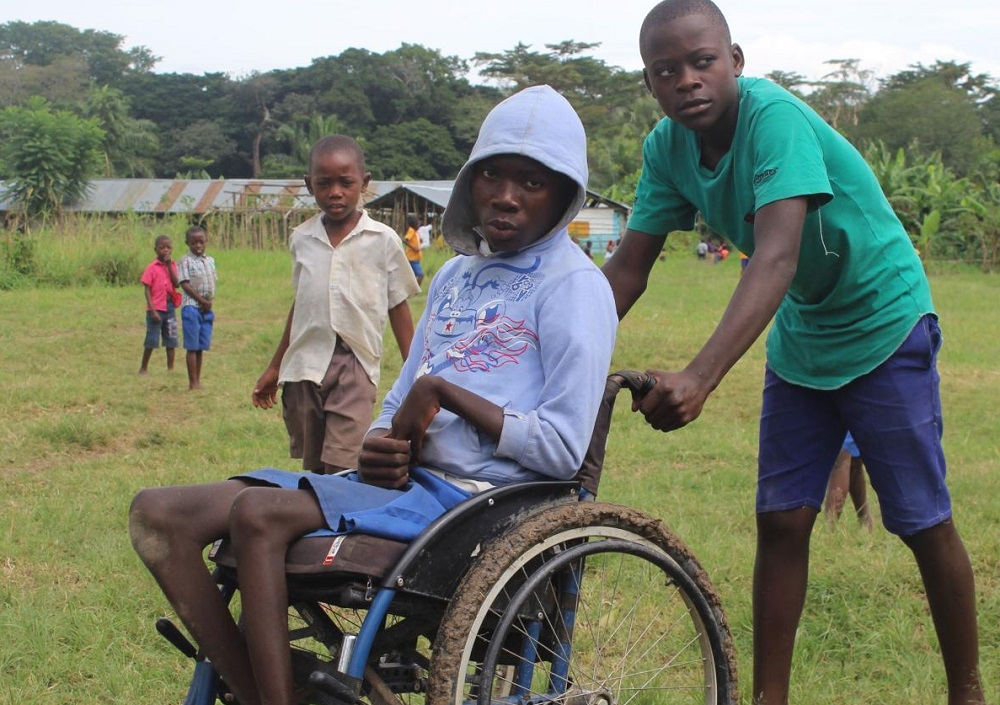By Allan Richard Odoch
GULU, UGANDA:– Civil Society Organizations (CSOs) have called on the Ugandan government to prioritize inclusive education for persons with disabilities, emphasizing the urgent need to create accessible learning environments.
The appeal was made earlier this week following the admission of a disabled learner who had been rejected by several schools in Gulu City and Amuru District, highlighting the ongoing challenges faced by students with disabilities in accessing quality education.
Kenneth Rubangakene, Program Associate at Gulu District NGO Forum, stressed the importance of shifting focus to inclusive education. “While much has been done to promote gender equality, it is time to also prioritize learners with disabilities. Many of them possess remarkable abilities, yet they continue to be excluded from the education system,” he said.
Peace Anena, a social worker at St. Jude Disabled Children’s Home, echoed Rubangakene’s concerns, lamenting the systemic barriers that hinder students with disabilities from accessing quality education.
“It is heartbreaking to see so many learners denied opportunities simply because of a lack of accessibility and support,” she noted.
Anena identified accessibility as a major challenge. “Schools must be designed to accommodate all learners. This includes constructing ramps and walkways for mobility-impaired students and providing essential learning aids such as Braille materials for the visually impaired and sign language interpreters for those with hearing impairments,” she emphasized.
Additionally, she highlighted stigma and discrimination as significant barriers to inclusive education. “We need to change societal attitudes and ensure learners with disabilities are treated with dignity and respect,” she said, calling for widespread sensitization campaigns to address misconceptions surrounding disability.
The discussion on inclusive education gained prominence after Nono Ambrose, a 15-year-old student with a disability, was denied admission to multiple schools in Gulu City and Amuru District despite scoring an impressive aggregate of 11 in last year’s Primary Leaving Examinations.
Ambrose was eventually admitted to Gulu High School after a six-week delay, during which his sponsor was required to fund the construction of a washroom and ramp to accommodate him. The school also insisted that he be provided with a caretaker to assist him throughout his education journey.
Education Officials Call for Inclusivity
Enguma Moses, Deputy Headteacher and Academic In-Charge at Gulu High School, underscored the necessity of inclusive education. “Schools must be inclusive and welcome all learners, regardless of their physical conditions. Disability is not a choice, and we must foster an education system that embraces all children,” he said.
Moses further noted that inclusive education is not only a moral obligation but also a legal requirement under the Persons with Disabilities Act (2006) and the United Nations Convention on the Rights of Persons with Disabilities (2008).
“Inclusive education benefits not only learners with disabilities but also the entire school community by fostering diversity and acceptance,” he added, urging schools and the government to provide reasonable accommodations such as assistive devices, specialized learning materials, and infrastructure to support students with disabilities.
While Uganda has policies supporting inclusive education, implementation remains weak. Kasakya Yusufu, an inclusive education advocate, criticized the government’s failure to enforce these policies.
“Every child has a right to education. Unfortunately, our inclusive education policy has remained largely unimplemented for 14 years, leaving many children with disabilities without access to quality education,” he said.
Kasakya called on the government to urgently enforce the inclusive education policy, allocate sufficient resources, and ensure that all schools are adequately equipped to accommodate learners with disabilities. “No child should be left behind,” he added.
To address these challenges, experts recommend constructing ramps and walkways in all learning institutions, providing specialized support services such as sign language interpreters and Braille transcribers, increasing funding for special needs education, and promoting awareness and acceptance of learners with disabilities.
Send us your story or opinion on: dailyexpressug@gmail.com. You can also follow Daily Express on WhatsApp for all the latest news and updates.


